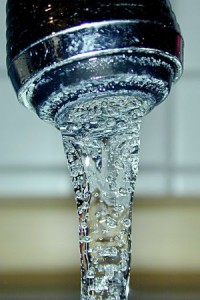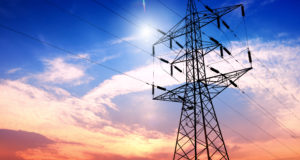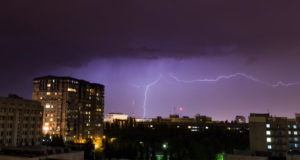 Many of us wake up in the morning, pour a glass of water or fix a cup of coffee, and do not give a second thought to where that water came from. For those of us who choose to live off the grid, we have developed a particular appreciation for the simple things that we utilize each day. There are substantial risks posed to our water supply, and it is of utmost importance that we consider the very real dangers that could limit or contaminate our nation’s water supply.
Many of us wake up in the morning, pour a glass of water or fix a cup of coffee, and do not give a second thought to where that water came from. For those of us who choose to live off the grid, we have developed a particular appreciation for the simple things that we utilize each day. There are substantial risks posed to our water supply, and it is of utmost importance that we consider the very real dangers that could limit or contaminate our nation’s water supply.
Natural Limitations Of The Water Supply
Some of the present problems with our water supply are composition based: with only so much freshwater available, we have a limited base supply of water to work with. Should portions of that freshwater supply suffer from any natural disasters or mal-interference, entire countries and populations would suffer from severe and potentially fatal water shortages.
Approximately 75 percent of available freshwater exists in the form of polar ice caps, meaning the general public cannot access it. In some areas, there already exists substantial conflict over access to water, and not just in countries that fight wars over limited water resources, like Egypt and neighboring countries. Nevada, a sparse climate with limited water resources, routinely fights over the direction of water pipelines, attempting to increase their access to water resources. The more our population grows, the direr the situation grows.
Natural Gas Drilling
As natural gas drilling increases, the amount of life-threatening toxins in our water increases as well. Hydraulic fracturing (fracking) is a method to retrieve natural gas that pumps dangerous chemicals into our water supplies. Recent reports show that nobody seems to know what chemicals are used in the process, despite the fact that gasses and chemicals are being released into our groundwater. EPA officials admit that they are not privy to the chemical compounds that companies are using in this process. The government has openly admitted that they declared a process safe in 2004 without having any idea which chemicals were being used and which chemicals we are being exposed to. Even the initial EPA report that declared the process safe noted that fracking “can cause kidney, liver, heart, blood, and brain damage through prolonged or repeated exposure.” We should be holding the government agency responsible for safe water and air for our children to a higher standard: writing a process off as potentially life threatening while approving it for continued use is unacceptable.
Pollution
Huge corporations throughout America operate with less-than-stellar business practices: that is no surprise to anyone. Anyone who has seen Erin Brockovich has a pretty solid idea of the problem occurring throughout the United States. Every company that drills into the ground presents a threat to sustaining a clean water supply throughout the country, and then they compound the threat they create by dumping chemical waste and other garbage into our water supply. Even companies that bury their waste in the ground have the potential to contaminate our water supplies, as that waste can seep into underground water resources that flow into our rivers and lakes.
Our water transportation infrastructure is not the only outdated system in the U.S., however. Sewage systems also leak every day. While water leakages simply decrease the amount of available water, sewer leaks poison and contaminate much of the water that is available. The Clean Water Act should have fixed this problem, but over 40 percent of our rivers and lakes still are not safe to swim or fish in. If we cannot even swim in these bodies of water, do we want to ingest them?
It would be almost impossible to pinpoint the origin of every toxin that our water supply has been exposed to, and that should be scary enough in and of itself. What we can do is push companies to transition to safer disposal processes of chemical (and ordinary) waste. Those companies can no longer be allowed to put the lives of millions of people at risk every single day in order to utilize a more convenient and potentially cheaper disposal method.
Outdated Infrastructure
Water shortage problems are inevitable in many communities, simply because of geographical proximity to water supplies. How much are these natural water shortages worsened by inefficient water infrastructure, leaking water each day? Reports show that water infrastructure in the United States currently leaks seven billion gallons of water every day. In a country with limited water resources, we cannot afford to exacerbate the water crisis by using infrastructure so outdated that it would cost more than $300 billion to fix. The water supplies we do have would go much farther if we properly utilized every gallon available to us. While it will be initially expensive, the country as a whole would save billions of dollars every year afterwards if we got all of the water possible out of our natural supplies, rather than being forced to scrounge for water as we lose tons of it each day.
Moving Forward
What is most troubling is that it is almost impossible to know when your water supply is going to be affected by one of the risk factors above. Water leakages happen everywhere, driving up the cost of water and making it less available. We have no way of knowing when contaminated water will enter our homes, putting ourselves and our families at risk.
Moving forward, communities have to push for outdated water infrastructure to be replaced. The government will not wake up one morning and decide to replace a system that will cost billions of dollars: they will have to be persuaded. Building a consensus in our communities that we will no longer allow our water to be wasted and contaminated is one of the most crucial steps we can take.
Make sure that your family is using a top-notch filtration system and purifying all of the water you use to avoid any interaction with dangerous chemicals that can be found in water throughout the country. There is a lot more at risk than water that tastes poorly: the health of your family is at risk.
©2012 Off the Grid News
 Off The Grid News Better Ideas For Off The Grid Living
Off The Grid News Better Ideas For Off The Grid Living



